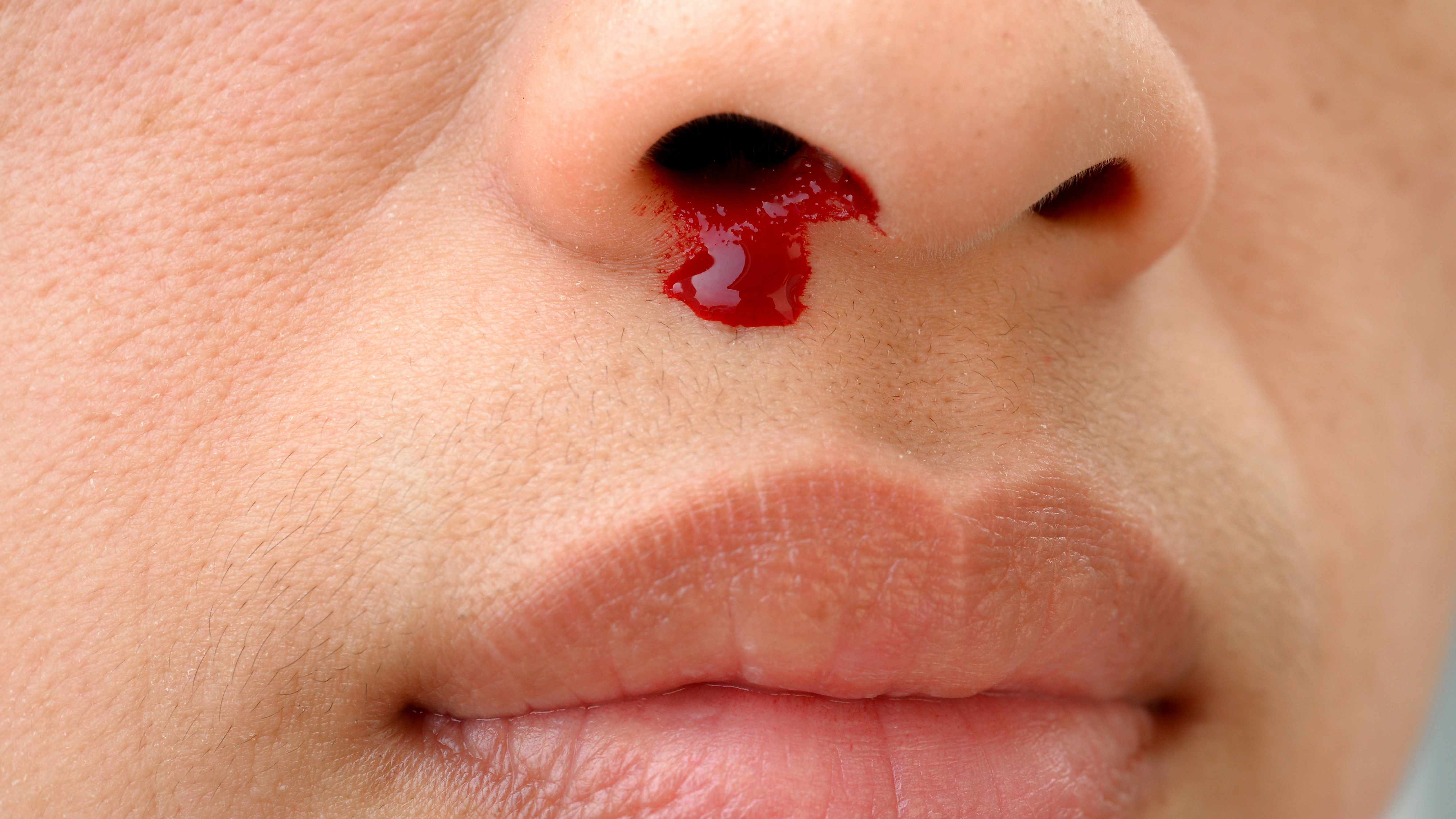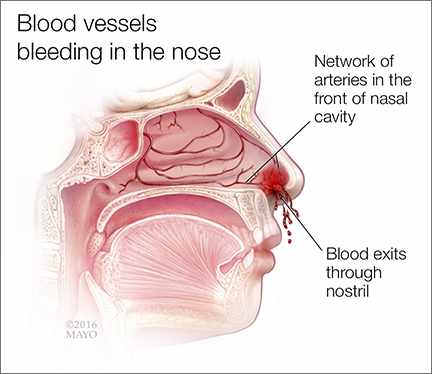-
Health & Wellness
Home Remedies: 4 steps to stop a nosebleed

Most nosebleeds aren't serious and will stop on their own or by following self-care steps.
Seek emergency medical care if nosebleeds:
- Follow an injury, such as a car accident
- Involve a greater than expected amount of blood
- Interfere with breathing
- Last longer than 30 minutes even with compression
- Occur in children younger than age 2
Don't drive yourself to an emergency room if you're losing a lot of blood. Call 911 or your local emergency number or have someone drive you.
Talk to your health care provider if you're having frequent nosebleeds, even if you can stop them fairly easily. It's important to determine the cause of frequent nosebleeds.
Self-care steps for occasional nosebleeds include:
- Sit upright and lean forward.
By remaining upright, you reduce blood pressure in the veins of your nose. This discourages further bleeding. Sitting forward will help you avoid swallowing blood, which can irritate your stomach. - Gently blow your nose to clear out any clotted blood. Spray a nasal decongestant in the nose.
- Pinch your nose.
Use your thumb and index finger to pinch both nostrils shut, even if only one side is bleeding. Breathe through your mouth. Continue to pinch for five to 10 minutes. This maneuver puts pressure on the bleeding point on the nasal septum and often stops the flow of blood. - Repeat.
If the bleeding doesn't stop, repeat these steps for up to a total of 15 minutes.
After the bleeding has stopped, to keep it from starting again, don't pick or blow your nose and don't bend down for several hours. Keep your head higher than the level of your heart.
Tips to help prevent nosebleeds include:
- Keeping the lining of the nose moist.
Especially during colder months when air is dry, apply a thin, light coating of petroleum jelly (Vaseline) or antibiotic ointment (bacitracin, Neosporin) with a cotton swab three times a day. Saline nasal spray also can help moisten dry nasal membranes. - Trimming your child's fingernails.
Keeping fingernails short helps discourage nose picking. - Using a humidifier.
A humidifier will counteract the effects of dry air by adding moisture to the air.
This article is written by Mayo Clinic staff. Find more health and medical information on mayoclinic.org.
Related Articles

Gastroenterology






